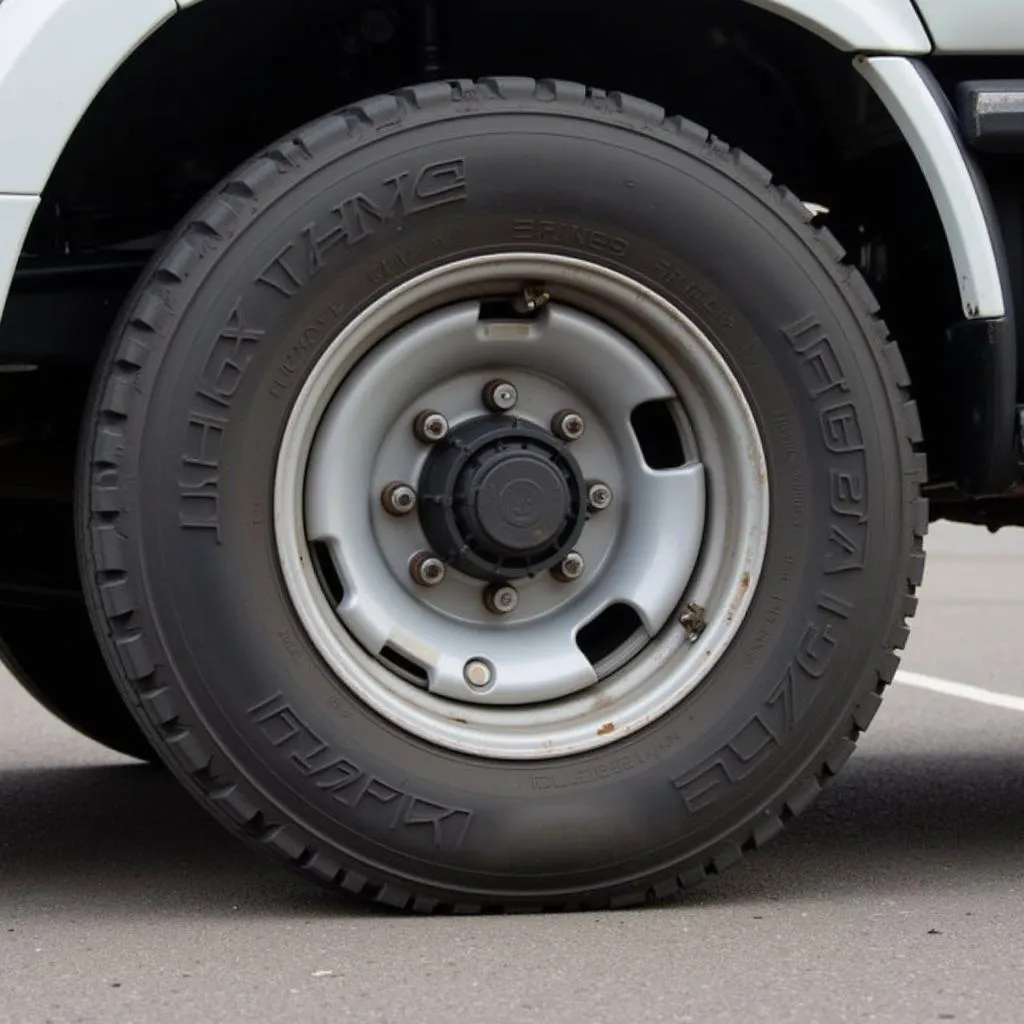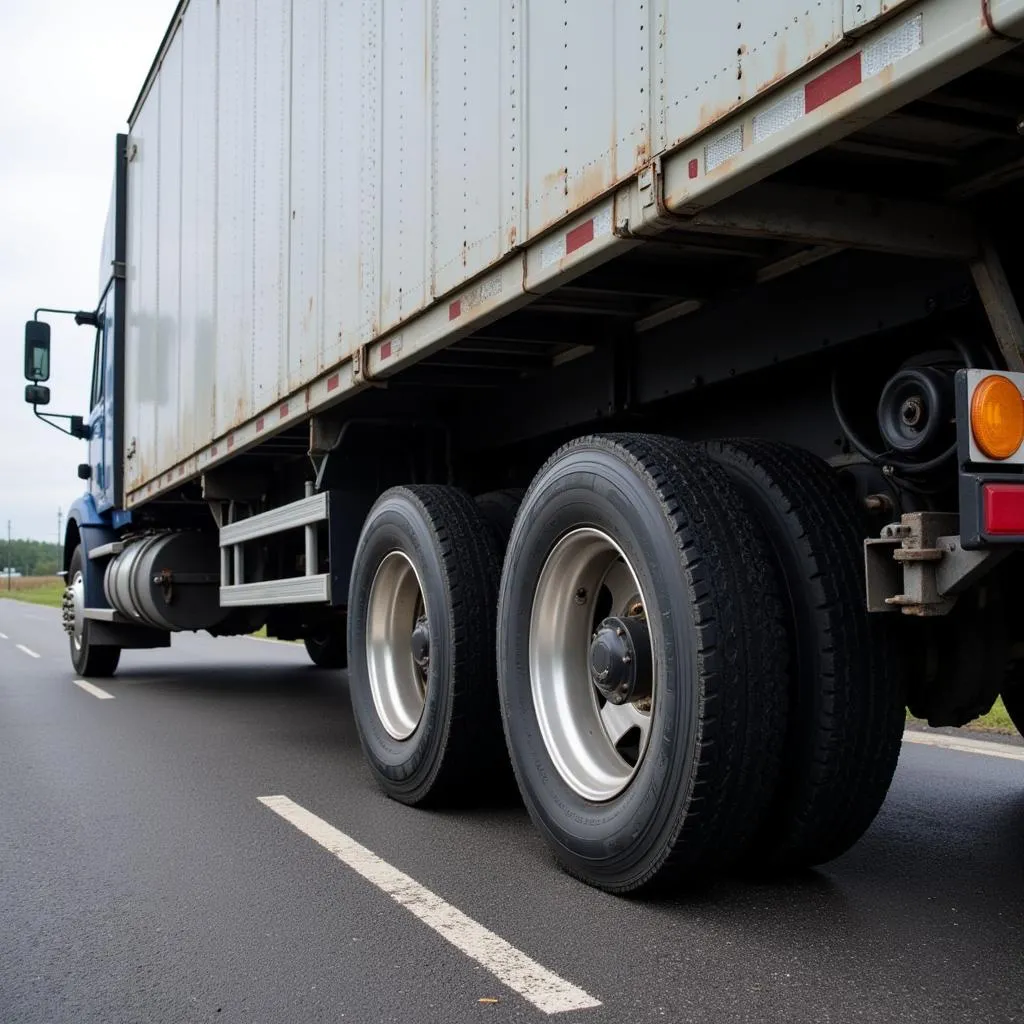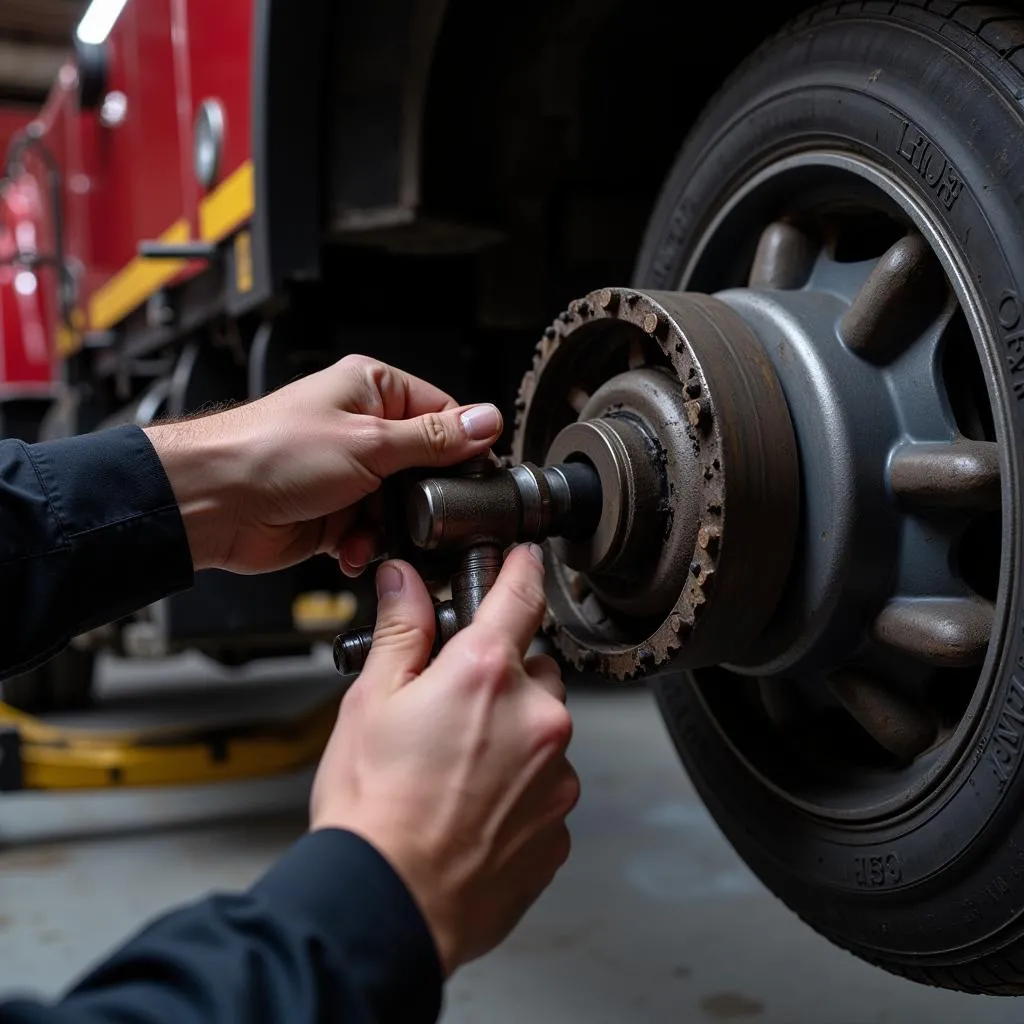Driving down the highway and feeling a vibration in your truck can be unsettling, to say the least. This issue not only affects your comfort but also could signal a serious underlying mechanical problem. This article explores the common causes of truck vibration at highway speeds and provides insights into diagnosing and resolving the issue.
Common Culprits Behind Truck Vibrations
Several factors can lead to your truck shaking at highway speeds. Identifying the root cause is crucial for effective repairs. Let’s dive into the most common culprits:
1. Tire Issues: The Usual Suspect
 Tire Imbalance Weights
Tire Imbalance Weights
More often than not, the primary cause lies with your tires. Here’s how:
- Tire Imbalance: An uneven distribution of weight within the tire and wheel assembly is a leading cause of vibration, especially noticeable at higher speeds.
- Uneven Tire Wear: Worn-out tires, especially when the wear is uneven due to misalignment or suspension issues, can significantly contribute to vibrations.
- Damaged Tires: Impacts from potholes or curbs can cause bulges or separations within the tire, resulting in noticeable shaking.
Pro Tip from John Miller, Senior Automotive Technician: “Always start with a thorough tire inspection. Look for uneven wear patterns, bulges, or any visible damage. Often, a simple tire balance or rotation can solve the problem.”
2. Wheel Problems: Keeping Things Round and True
 Damaged Truck Wheel
Damaged Truck Wheel
Problems with your wheels themselves can also contribute to vibration issues:
- Wheel Alignment: If your wheels are not pointing in the same direction, it can cause pulling, uneven tire wear, and vibrations.
- Bent or Damaged Wheels: Impacts from potholes can bend your wheels, leading to an uneven rotation and vibrations.
- Loose Lug Nuts: A seemingly minor issue, loose lug nuts can cause significant wobbling and vibrations, especially at speed.
3. Drivetrain Components: Power Transfer Gone Wrong
 Truck Driveshaft Inspection
Truck Driveshaft Inspection
The components responsible for transferring power from your engine to the wheels can also be the source of vibrations:
- Worn U-Joints: Universal joints (U-Joints) allow for movement in the driveshaft. Worn U-joints can create a clunking or vibrating sensation, especially during acceleration or deceleration.
- Driveshaft Imbalance: Similar to tire imbalance, an off-center driveshaft can cause vibrations that worsen with speed.
- Differential Issues: Problems within the differential, which allows your wheels to rotate at different speeds during turns, can also manifest as vibrations.
Troubleshooting Truck Vibrations: A Step-by-Step Guide
Here’s a systematic approach to identifying the source of the vibration:
- Check for Patterns: Does the vibration occur at specific speeds? Is it worse during acceleration, deceleration, or constant speed? Noting these patterns can provide valuable clues.
- Inspect Your Tires: Look for uneven wear, bulges, and any signs of damage. Check the tire pressure in all tires, including the spare.
- Check Wheel Alignment: Have a trusted mechanic inspect your vehicle’s alignment.
- Inspect the Driveshaft: Look for signs of wear or damage, particularly on the U-joints.
- Listen for Noises: Pay close attention to any clunking, grinding, or humming sounds that could indicate a specific component problem.
Addressing the Vibrations: Seeking Professional Help
While some vibration issues may have simple solutions, it’s generally recommended to consult with a qualified mechanic, especially if the problem persists. They have the tools and expertise to accurately diagnose the problem and recommend the right course of action.
Ignoring Vibrations? Not a Good Idea
Driving with vibrations for prolonged periods can worsen the problem and lead to more extensive and costly repairs down the road. It can also compromise your safety and the vehicle’s handling, especially at highway speeds.
FAQs about Truck Vibration at Highway Speeds
1. Can a bad alignment cause vibration at highway speeds?
Yes, a misaligned vehicle can lead to uneven tire wear and vibrations, especially noticeable at higher speeds.
2. How often should I get my tires rotated and balanced?
It’s generally recommended to rotate and balance your tires every 5,000 to 7,500 miles to ensure even wear and prevent vibrations.
3. Can a worn-out shock absorber cause vibrations?
While not a direct cause of vibrations, worn shock absorbers can exacerbate vibration issues by reducing tire contact with the road surface.
4. How dangerous is it to drive with a vibrating truck?
Driving with vibrations can be dangerous as it affects the vehicle’s handling and stability, especially at highway speeds.
5. How much does it cost to fix truck vibrations?
The cost of repair varies greatly depending on the underlying cause. A simple tire balance might be inexpensive, while drivetrain repairs can be significantly more costly.
Need More Help with Truck Vibrations?
If you are experiencing truck shaking when stopped, or vehicle shaking at high speeds, or just want to understand why your truck shakes at high speeds, check out these additional resources for more information.
For personalized assistance and expert advice on diagnosing and resolving your truck vibration issues, don’t hesitate to contact us today. We’re here to help you get back on the road smoothly and safely!